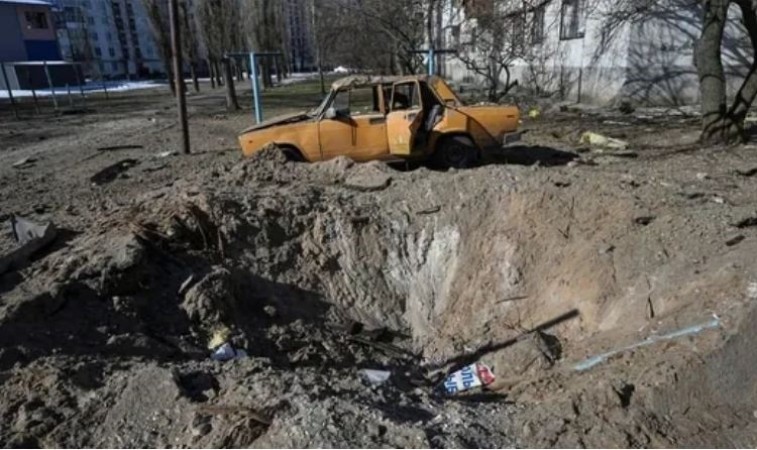
KIEV: Ukraine has accused Russia of using phosphorus munitions to attack the besieged city of Bakhmut, a media report said.
According to BBC, Bakhmut can be seen on fire as what looks to be white phosphorus showers down on the city in drone footage released by the Ukrainian military.
Although the use of white phosphorus weapons in residential areas is not prohibited, it is seen as a war crime. They start fires that spread quickly and are particularly challenging to put out. Additionally, Russia has been charged with deploying them in the past.
Despite Bakhmut's dubious strategic relevance, Russia has been attempting to seize it for months. Thousands of Moscow's soldiers are thought to have perished in the assault, according to Western officials.
The Ukrainian defence ministry claimed on Twitter that the phosphorous strike used "incendiary ammunition to target unoccupied areas of Bakhmut."
Moscow's forces continued "to destroy the city," Kiev's special forces command stated.
The precise time of the purported attack is unknown. But according to BBC, the video that Ukraine published, which was apparently shot by a surveillance drone, showed tall buildings that were on fire.
Other social media footage featured fires burning on the ground and white phosphorous clouds illuminating the night sky.
Since commencing its full-scale invasion of Ukraine last year, Russia has been accused of employing white phosphorous numerous times, including during the siege of Mariupol at the start of the conflict.
White phosphorous use has never been publicly acknowledged by Moscow, and after Ukraine President Volodymyr Zelensky claimed it had occurred last year, Kremlin press secretary Dmitry Peskov asserted that "Russia has never violated international conventions."
According to the BBC, white phosphorus is a wax-like material that burns brightly when it comes into contact with oxygen.
Russia imprisons artists while repressing dissatisfaction
Ukrainian MP got angry, attacked Russian leader with bribes
India, Russia underline their commitment to enhancing counter-terror cooperation